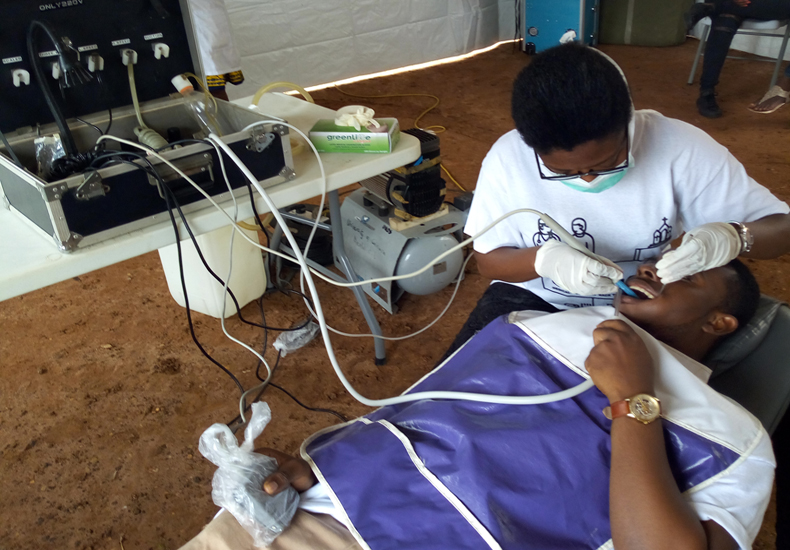
Those who sleep outside are often most mistrustful of institutions for valid reasons, not least of which is the trauma they have experienced in medical settings. Services on a Vehicle are not Street MedicineĪccording to our colleagues at the Street Medicine Institute, services provided on a health center’s mobile clinic do not constitute street medicine because it conflicts with their core ethic of suspending the traditional patient-provider power dynamic.

In between are Mobile Medical Units (MMU) of different sizes, some of which constitute the clinic itself whereas others simply transport the outreach team: but here there is a philosophical line. On the other end is an RV, the largest of which have multiple exam rooms, wheelchair lifts, and other bells and whistles (for example, check out this six-minute virtual tour of New Horizon Family Health Services’ 35-foot MMU!). On one end is street medicine, otherwise known as backpack medicine (especially in communities where outdoor homelessness is hardly urban), which is direct care for people living unsheltered in the place where they reside. Medical outreach comprises a continuum of service delivery methods. But how do you get clinical services out there? We must meet people where they are, including indoor locations like soup kitchens, shelters, and libraries, in addition to outdoor locations like encampments, wooded areas, and sidewalks.
MEDICAL OUTREACH FREE
To be able to continue to provide this type of holistic care to the patients we now serve and the many more we would love to serve, we need your continued prayers and financial support.FebruPrimary audience: health centers, free and charitable clinics, safety-net hospitals Photo: The Night Ministry and Alameda County HCH Meeting people’s needs wherever they may beĪs the increase of people living unsheltered drives the overall rise in homelessness, providers increasingly understand that their services must be accessible wherever their clients reside. The mission continues to be life transformation for every man, woman, and child-we believe that one of the ways this is strategically done is through the Medical Outreach Program. Most importantly, during the weekly patient visits, the team is intentional to focus on spiritual discipleship, council and support, and connecting the patient with the local church. A part of the process is getting patients sponsored and enrolled in school, doing focused specific education by providers and nurses to a patient, and even facilitating and connecting patient with job opportunities to potentially give her or him the freedom to support themselves and their family’s needs independently. We strive to provide a comprehensive educational plan that empowers each patient to take control of their health, manage their medical needs through the gaining of information about their current illness, and gain financial stability so that they can provide. We also have been able to raise funds and facilitate surgical care for patient's needing operations such as a colostomy reversal, hydrocephalus treatment, insertion of suprapubic catheter, amputation of lower extremity, eye surgery, and rectal surgery. Coordinating and providing transport for follow up care.Coordinating and providing transportation to patients' hospital appointments and specialized doctor visits.Taking severely malnourished babies and children to a nutrition program to receive highly caloric protein packs supporting weight gain.Picking up amputee patients to receive care at the Mission of Hope Prosthetics Lab.Purchasing and delivering blood pressure medications for numerous patients with hypertension.Delivering insulin to diabetics who otherwise couldn’t afford this medication or the monthly cost of a clinic visit.Delivering seizure medication to a precious 12-year-old patient with hydrocephalus.Some of the current weekly activities for the MOPs team include: During this time, they can facilitate provider visits, deliver medication, provide continuing education specific to a patient’s needs, drop off nutritional supplies, and provide other specific services related to a patient’s needs. Several days each week, a member of the Haitian MOPs team makes rounds and visits the patients.

The MOPs program allows the team to develop individualized long term care plans as well as build relationships with patients and their families. The Medical Outreach Program (MOPs) was developed as an avenue to better serve patients with chronic illness, surgical needs, and acute medical concerns who could not otherwise be treated in a one-time visit by our mobile health care teams or The Clinic of Hope.


 0 kommentar(er)
0 kommentar(er)
